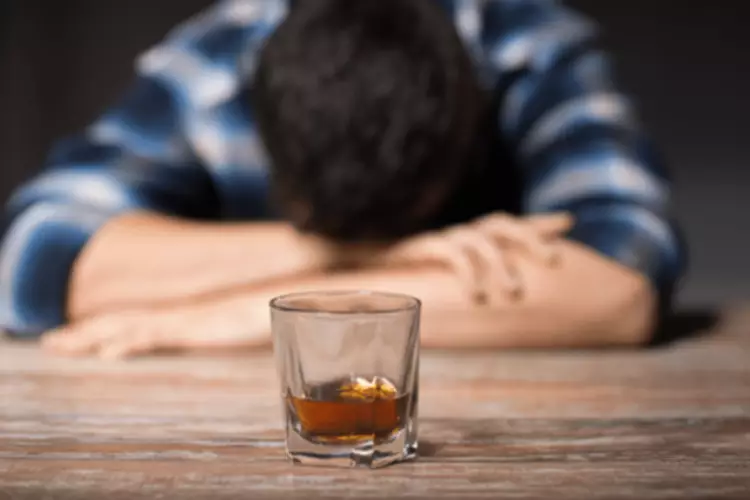Your liver produces enzymes that break down alcohol, but your liver can only handle so much alcohol at one time (approximately 1 ounce per hour). Below we explore the specific parts of the body alcohol affects. Alcoholics Anonymous is available almost everywhere and provides a place to openly and nonjudgmentally discuss alcohol issues with others who have alcohol use disorder. Your gut microbiome is a hotbed of bacteria that help keep your digestive system happy and healthy. The trillions of microbes in your colon and large and small intestines are critical to proper digestion.
Risk of death
The negative side effects of alcohol can also accumulate, harming your health over your lifetime. Another study has shown that drinking red wine may help individuals with coronary heart disease. Epidemiological studies have supported that red wine is more coronary heart preventative in comparison to other alcoholic beverages. Even light alcohol consumption — up to one drink per day — is linked to a 20% increased risk of mouth and throat cancer (59, 60).
How Alcohol Impacts the Body
If you do have any symptoms, then alcohol may already be a cause for concern. The more symptoms you have, the more urgent the need for change. A health care professional can look at the number, pattern, and severity of symptoms to see whether a guide to taking ecstasy as safely as possible AUD is present and help you decide the best course of action. According to the National Institute on Alcohol Abuse and Alcoholism (NIAAA), one “standard” drink in the United States contains approximately 14 grams of pure alcohol.
- Many people drink alcohol as a personal preference, during social activities, or as a part of cultural and religious practices.
- The problem is, most people have no idea what qualifies as a “standard drink.” To worsen matters, the official definition of a standard drink differs between countries.
- People who drink heavily over a long period of time are also more likely to develop pneumonia or tuberculosis than the general population.
- Heavy drinking can also lead to a host of health concerns, like brain damage, heart disease, cirrhosis of the liver and even certain kinds of cancer.
- If you do choose to drink, take the necessary precautions to stay safe.
“Single session” drinking
But drinking too much alcohol can negatively affect your physical and mental health, your actions, and your decision-making. There are many short and long-term side effects of alcohol consumption. On the other hand, alcohol abuse and alcohol addiction are linked to severe negative effects on both physical and mental health. Keep in mind that your cancer risk may increase — regardless of how much you are drinking. Alcohol can impact various parts of the body, including the brain, heart, liver, and pancreas, as well as essential body systems like the immune and digestive systems. Alcohol use can increase the risk of cardiovascular problems, cognitive decline, liver disease, mental health conditions, and more.
Too much alcohol affects your speech, muscle coordination and vital centers of your brain. A heavy drinking binge may even cause a life-threatening coma or death. This is of particular concern when you’re taking certain medications that also depress the brain’s function. If you feel that you sometimes drink too much compare sober homes alcohol, or your drinking is causing problems, or if your family is concerned about your drinking, talk with your health care provider. Other ways to get help include talking with a mental health professional or seeking help from a support group such as Alcoholics Anonymous or a similar type of self-help group.
If you tend to drink excessively or notice that alcohol causes problems in your life, you should avoid it as much as possible. The problem is, most people have no idea what qualifies as a “standard drink.” how long does weed stay in your system To worsen matters, the official definition of a standard drink differs between countries. Red wine may be one of the healthiest alcoholic beverages, probably due to its high concentration of antioxidants.
One night of binge drinking can jumble the electrical signals that keep your heart’s rhythm steady. If you do it for years, you can make those heart rhythm changes permanent and cause what’s called arrhythmia. Over time, it causes heart muscles to droop and stretch, like an old rubber band.
Drinking more than 2 standard drinks a day can seriously affect your physical and mental health over your lifetime. Heavy drinking and beer are linked to increased weight gain, while light to moderate drinking and wine are linked to reduced weight gain. While alcohol intoxication is only temporary, chronic alcohol abuse can impair brain function permanently.
In the coming weeks, your liver will also begin to repair itself. If you have decided that it is time to stop or reduce your alcohol consumption, knowing what happens to your body when you stop drinking can give you a better idea of what to expect. The effects of alcohol on your health will depend on how much you drink.
Having a glass of wine with dinner or a beer at a party here and there isn’t going to destroy your gut. But even low amounts of daily drinking and prolonged and heavy use of alcohol can lead to significant problems for your digestive system. But there’s plenty of research to back up the notion that alcohol does lead to weight gain in general. You probably already know that excessive drinking can affect you in more ways than one.
One of the financial benefits of giving up alcohol is that you’ll likely have more money to spend. This is because alcohol is a costly habit, so giving it up can free up some extra cash. Another benefit of giving up alcohol is that your mind may be clearer. This is because alcohol can cause changes in brain chemistry, which can lead to cognitive problems. While giving up alcohol can be a challenge, it’s important to remember that the benefits are well worth it. John C. Umhau, MD, MPH, CPE is board-certified in addiction medicine and preventative medicine.
They may have an intolerance, insensitivity, or allergy to alcohol or another ingredient in a drink. Drinking alcohol is so common that people may not question how even one beer, cocktail, or glass of wine could impact their health. Alcohol is a part of cultural traditions all around the world…and it’s also a drug that chemically alters the body. Alcohol irritates the lining of your stomach and makes your digestive juices flow. If enough acid and alcohol build up, you get nauseated and you may throw up.
When you stop drinking, you might notice a range of physical, emotional, or mental health symptoms that ease as soon as you have a drink. Chronic drinking can affect your heart and lungs, raising your risk of developing heart-related health issues. The connection between alcohol consumption and your digestive system might not seem immediately clear.




